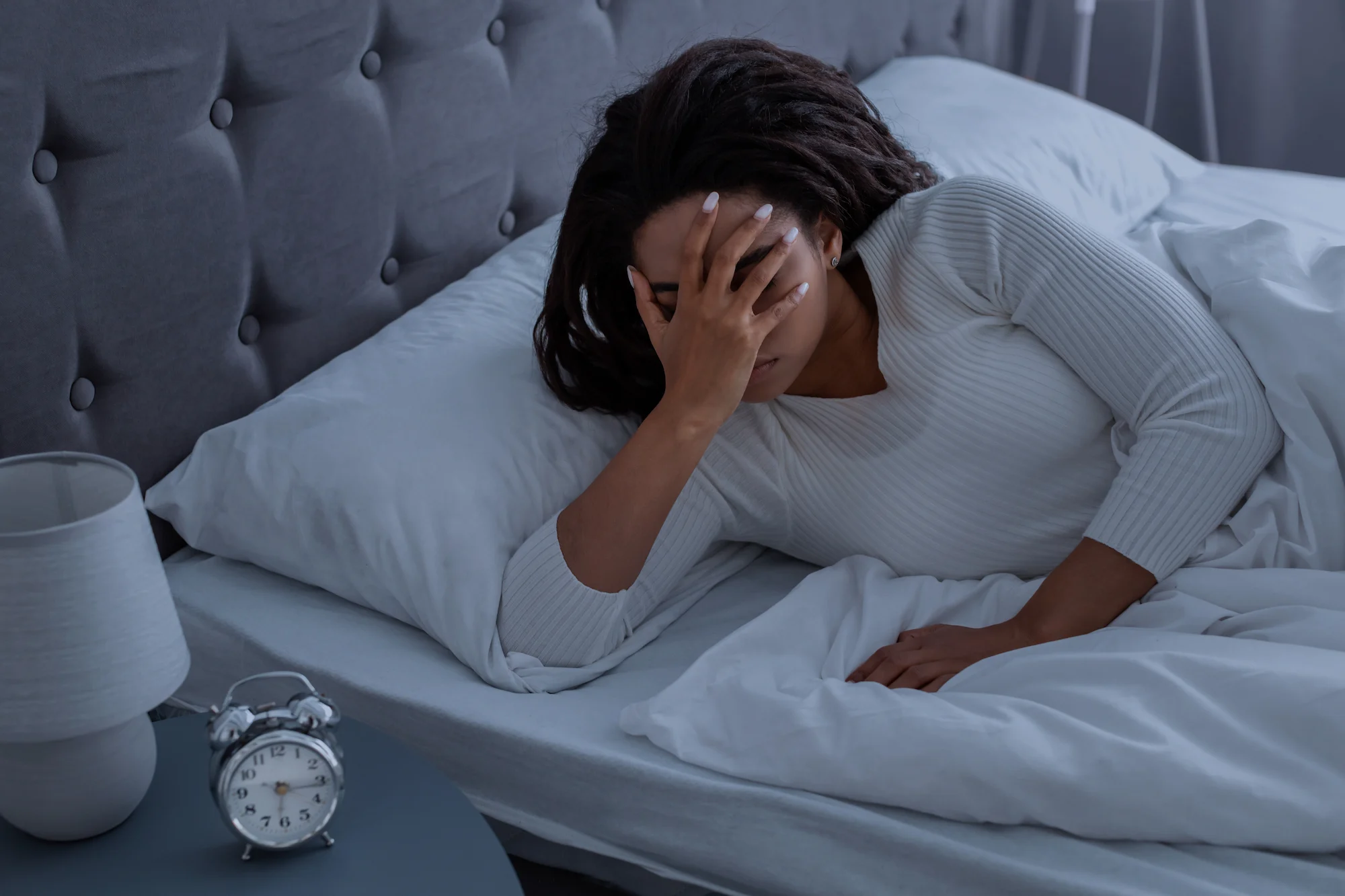What are the Ideal Amount of Sleep requirements for your nights? Uncover the significance of sleep and enhance both your sleep habits and the quality of your waking hours by gaining a deeper understanding of your body’s needs.
Why is sleep so important?
The quality of your nightly sleep directly impacts your mental and physical well-being, influencing how you feel throughout the day. Ideal Amount of Sleep plays a crucial role in your productivity, emotional equilibrium, brain and heart health, immune system function, creativity, vitality, and even weight management. Surprisingly, no other activity offers as many benefits with such minimal effort!
Amid a hectic schedule or when struggling to find rest at night, the idea of getting by with fewer hours may seem appealing. However, even a slight reduction in sleep duration can have a significant impact on your mood, energy levels, cognitive sharpness, and ability to cope with stress. Over the long run, chronic sleep deprivation can seriously jeopardize both mental and physical health.
Sleep goes beyond a mere shutdown of your body; it is a crucial period during which your brain engages in vital biological maintenance to keep your body functioning optimally, preparing you for the upcoming day. Insufficient hours of restorative Ideal Amount of Sleep can hinder your ability to work, learn, create, and communicate at your full potential. Consistently neglecting adequate sleep is a path toward a substantial breakdown in mental and physical well-being.
The encouraging news is that you don’t have to compromise between health and productivity. By addressing any sleep-related issues and prioritizing sufficient Ideal Amount of Sleep each night, you can elevate your energy levels, efficiency, and overall health. You are likely to accomplish more during the day when compared to skimping on sleep and attempting to extend working hours.
Myths and facts about sleep
Myth: Losing just one hour of Ideal Amount of Sleep per night won’t impact your daytime functioning.
Fact: Even if you don’t feel noticeably sleepy during the day, the loss of just one hour of sleep can hinder your ability to think clearly and respond quickly. It also compromises cardiovascular health, reduces energy levels, and weakens your immune system.
Myth: Your body can quickly adapt to different sleep schedules.
Fact: While most people can reset their biological clock with appropriately timed cues, this adjustment occurs gradually, typically by one or two hours per day at best. Therefore, it may take over a week to fully adapt after traveling across multiple time zones or transitioning to a night shift at work.
Myth: Getting an extra Ideal Amount of Sleep at night can resolve issues of excessive daytime fatigue.
Fact: While the quantity of sleep matters, it’s the quality that demands attention. Some individuals may sleep for eight or nine hours nightly but wake up feeling unrested due to poor sleep quality.
Myth: Compensating for lost sleep during the week by sleeping more on weekends is effective.
Fact: While this pattern can partially alleviate a sleep debt, it does not entirely make up for the lack of sleep. Additionally, sleeping in on weekends can disrupt your sleep-wake cycle, making it challenging to adhere to a proper sleep schedule on Sunday nights and wake up early on Monday mornings.
Sleep needs
There is a significant disparity between the amount of sleep one can manage and the amount necessary for optimal functioning. The National Institutes of Health highlights that the average adult sleeps less than seven hours each night. In the fast-paced context of today’s society, six or seven hours of sleep might seem satisfactory. However, it is, in reality, a formula for chronic sleep deprivation.
Merely being able to function on six or seven hours of sleep doesn’t negate the fact that dedicating an extra hour or two to sleep could lead to feeling significantly better and achieving greater productivity.
Though sleep needs can slightly differ from person to person, the consensus is that most healthy adults require seven to nine hours of sleep each night to perform at their peak. Children and teenagers, in particular, need even more sleep. Despite the misconception that sleep needs diminish with age, most older individuals still benefit from at least seven hours of sleep. Given that older adults often encounter challenges achieving this duration at night, daytime naps can serve as a helpful supplement.
Average sleep needs by age
Recommended sleep durations by age:
Age Hours needed May be appropriate
- Newborn to 3 months old 14 – 17 hrs 11 – 19 hrs
- 4 to 11 months old 12 – 15 hrs 10 – 18 hrs
- 1 to 2 years old 11 – 14 hrs 9 – 16 hrs
- 3 to 5 years old 10 – 13 hrs 8 – 14 hrs
- 6 to 13 years old 9 – 11 hrs 7 – 12 hrs
- 14 to 17 years old 8 – 10 hrs 7 – 11 hrs 7 – 11 hrs
- Young adults (18 to 25 years old) 7 – 9 hrs 6 – 11 hrs
- Adults (26 to 64 years old) 7 – 9 hrs 6 – 10 hrs
- Older adults (65+) 7 – 8 hrs 5 – 9 hrs
Source: National Sleep Foundation
To gauge if you’re meeting your sleep requirements, assess how you feel throughout the day. If you’re obtaining sufficient sleep, you should experience sustained energy and alertness from the moment you wake up until your usual bedtime.
Are 6 hours of sleep?
For the majority of individuals, no. A study by researchers at the University of California, San Francisco, revealed that a small percentage of people possess a gene that allows them to perform effectively on just six hours of sleep per night. However, this gene is exceptionally rare, being present in less than 3% of the population. For the remaining 97% of people, a mere six hours of sleep falls significantly short of meeting their needs.
The significance of restorative deep sleep and REM sleep
The significance of sleep extends beyond its duration; the quality of those hours is equally crucial. If you allocate ample time for sleep but struggle with morning awakenings or maintaining alertness throughout the day, you might not be dedicating sufficient time to various sleep stages. Each stage in the sleep cycle provides distinct benefits, with a special emphasis on the rejuvenating deep sleep phase, essential for bodily repair and energy replenishment, and mood-enhancing REM sleep.
To enhance the duration of deep sleep, it’s advisable to steer clear of alcohol and nicotine and minimize disruptions during the night caused by noise or light. While overall sleep improvement contributes to increased REM sleep, an additional 30 minutes to an hour of sleep in the morning, when REM sleep stages are more extended, can also be beneficial.
Signs that you’re not getting enough sleep
If you consistently get less sleep than the recommended amount each night, you’re likely experiencing sleep deprivation. Surprisingly, you might not be fully aware of the extent to which this lack of sleep is impacting you.
How is it possible to be unaware of sleep deprivation? The signs are often more subtle than dramatically falling asleep on your dinner plate. Additionally, if you’ve developed a habit of cutting back on sleep, you may have forgotten what it feels like to be genuinely wide awake, fully alert, and operating at your peak. Feeling drowsy during a tedious meeting, struggling through the afternoon slump, or nodding off after dinner might seem normal, but the reality is that it’s only considered “normal” if you’re experiencing sleep deprivation.
You could be experiencing sleep deprivation if you…
- Depends on an alarm clock to wake up at the desired time.
- Frequently use the snooze button.
- Face difficulty rising from bed in the morning.
- Experience sluggishness in the afternoon.
- Feel drowsy during meetings, lectures, or in warm environments.
- Become sleepy after consuming heavy meals or while driving.
- Need naps to get through the day.
- Drift off during evening TV or relaxation.
- Feel the urge to sleep in on weekends.
- Drift off within five minutes of getting into bed.
Ways to attain the necessary sleep
Whether you’re aiming to reset your sleep schedule, address a specific sleep concern, or simply enhance your overall productivity and emotional well-being during the day, try out the following sleep tips. Experiment with them to identify the strategies that prove most effective in ensuring a restful night’s sleep.
Firstly, rule out potential medical causes for your sleep issues. A disrupted sleep pattern might be a symptom of an underlying physical or mental health condition, or it could be a side effect of certain medications.
Maintain a consistent sleep schedule to support your biological clock; go to bed and wake up at the same time every day, even on weekends. Incorporate regular exercise into your routine, aiming for at least 30 minutes on most days, but be mindful not to engage in vigorous activity too close to bedtime.
Mind what you eat and drink, as caffeine, alcohol, and sugary foods can disrupt your sleep. Steer clear of large meals or consuming excessive fluids near bedtime.
If stress is a major factor affecting your sleep, seek help with stress management. Learning effective ways to handle stress related to work, family, or school can significantly improve your sleep quality.
Enhance your sleeping space by ensuring your bedroom is dark, quiet, and cool. Reserve your bed exclusively for sleeping and intimate activities.
Establish a calming bedtime routine that excludes screens, work-related activities, and stressful conversations late at night. Wind down by taking a warm bath, reading under dim light, or practicing relaxation techniques to prepare your mind for sleep.
If you wake up during the night feeling anxious, jot down a brief note about it and postpone worrying until the next day when it’s more conducive to resolution.https://en.wikipedia.org/wiki/Sleep_deprivation_in_higher_education




